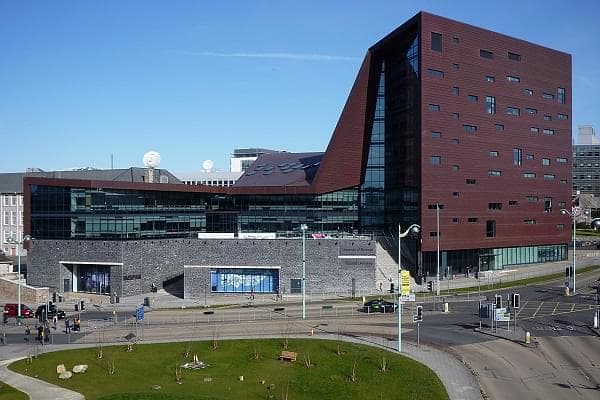Year 1
Our MSc Medical Engineering degree provides all the technical knowledge, expertise and transferable skills you need to follow a successful career in one of the fastest growing disciplines in engineering and healthcare. The programme involves 180 credits of study at Level 7 with flexibility to meet your individual development needs.
Students can choose one of the two research-aligned pathways: Nanotechnology and Biomedical Diagnostics. Each pathway offers two specialty modules.
Nanotechnology pathway
- Medical Engineering and Biomechanics (MECH549) – 20 credits
This module will develop specialised knowledge and understanding required for designing medical devices and implants used in medical engineering applications and biomechanical systems; evaluate the selection of appropriate materials and appraise material-tissue interactions; develop computer aided analytical techniques to evaluate behaviour and performance of medical devices and biomechanical systems.
- Health Data and Medical Statistics (MATH515) – 20 credits
This module provides an introduction to health data and medical statistics, and related ethical considerations. It discusses statistical techniques for the design, analysis and interpretation of medical studies. Up-to-date professional software for analysing health data is studied. Experience in preparing a professional statistical analysis plan is provided.
- Engineering Research Methods and Professional Development (ENGR501) – 20 credits
This modules provides a methodical approach to engineering research that helps identifying and defining projects that are practically realistic and academically worthwhile. You will plan your research project and select ethically suitable quantitative and qualitative research methods. Your progression towards professional registration will be appraised and plans made for your personal development.
- Advanced Engineering Design Project (MECH553) – 20 credits
This module will further advance your knowledge and understanding of contemporary strategies, tactics, and tools of engineering design practice. Working in a team, you will develop environmentally sustainable solutions to a complex design challenge. You will demonstrate innovation and creativity in the use of technology and present your proposed solutions using industrial standard CAD tools.
- Nanotechnology and Nanoelectronics (ELEC512) – 20 credits (Specialty module)
This module is designed to provide interdisciplinary training in all aspects of the emerging Nanotechnology field. It introduces techniques for developing nano-scale devices and sensor technology as well as the nano-fabrication techniques required to construct them.
- Advanced Materials and Nanotechnology (MECH551) – 20 credits (Specialty module)
This module develops an enhanced knowledge and understanding of contemporary engineering materials (metals and alloys, polymers, composites, rubbers and ceramics) with a focus on nanomaterials, including their applications in medical engineering and the advanced analytical technics required for their characterisation.
- MSc Dissertation (PROJ517) – 60 credits
You will demonstrate practical skills and knowledge of research methods to plan and implement high quality research. You will carry out a substantial research investigation on a topic of your choice and report upon the aims, methodology, data analysis, interpretation, synthesis, and conclusions through a high quality, scholarly and professional write-up of the project, either as a formal dissertation or journal paper.
Biomedical Diagnostics pathway
- Medical Engineering and Biomechanics (MECH549) – 20 credits
This module will develop specialised knowledge and understanding required for designing medical devices and implants used in medical engineering applications and biomechanical systems; evaluate the selection of appropriate materials and appraise material-tissue interactions; develop computer aided analytical techniques to evaluate behaviour and performance of medical devices and biomechanical systems.
- Engineering Research Methods and Professional Development (ENGR501) – 20 credits
This modules provides a methodical approach to engineering research that helps identifying and defining projects that are practically realistic and academically worthwhile. You will plan your research project and select ethically suitable quantitative and qualitative research methods. Your progression towards professional registration will be appraised and plans made for your personal development.
Core modules
Engineering Research Methods and Professional Development (ENGR501)
You will use a methodical approach to engineering research that helps identify and define projects that are practically realistic and academically worthwhile. You will plan your research project and select ethically suitable quantitative and qualitative research methods. Your progression towards professional registration will be appraised and plans made for your personal development.
Medical Engineering and Biomechanics (MECH549)
This module will develop specialised knowledge and understanding required for designing medical devices and implants used in medical engineering applications and biomechanical systems; evaluate the selection of appropriate materials and appraise material-tissue interactions; develop computer aided analytical techniques to evaluate behaviour and performance of medical devices and biomechanical systems.

